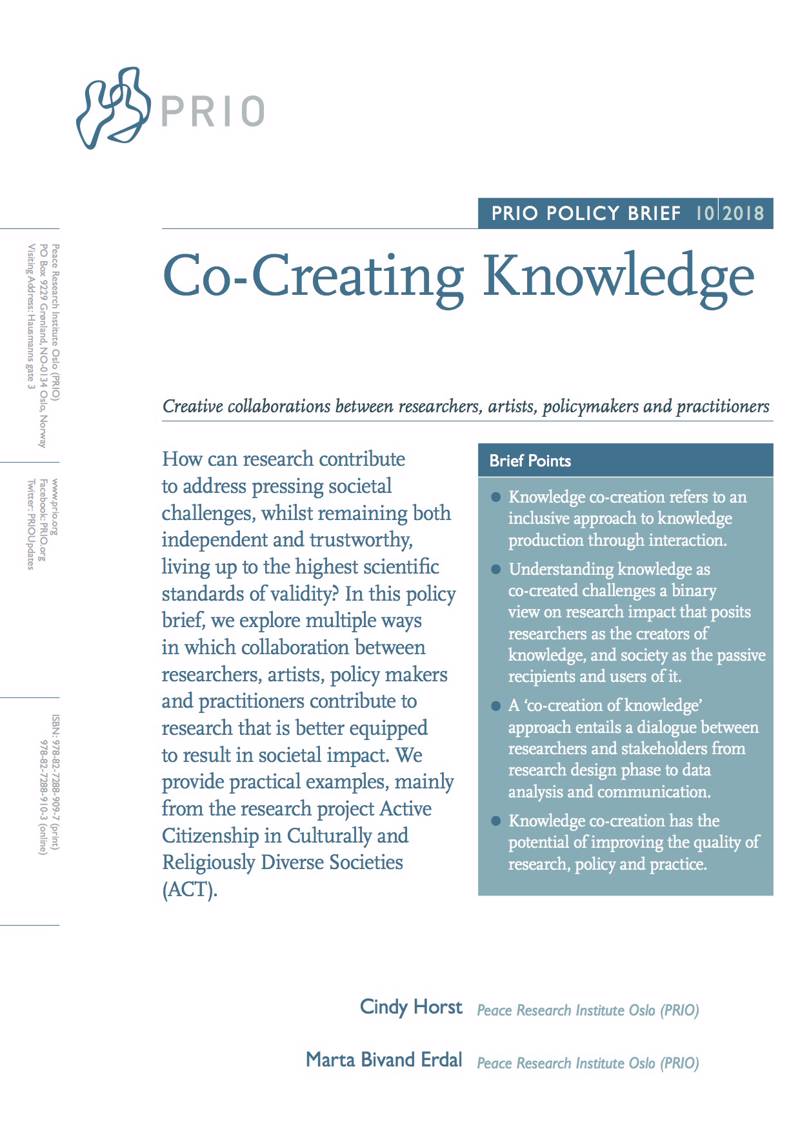
In a new policy brief, Cindy Horst and Marta Bivand Erdal provide perspectives on the question of how academic knowledge can contribute to address pressing societal challenges, whilst living up to the highest scientific standards of validity.
Knowledge co-creation refers to an inclusive approach to knowledge production through interaction and dialogue between researchers and stakeholders from research design phase to data analysis and communication. Research impact is commonly seen as based on a binary between researchers as the creators of knowledge, and society as the passive recipients and users of it. The policy brief explores multiple ways in which the process of collaborative forms of knowledge production between researchers, artists, policy makers and practitioners can have societal impact and improve the quality of research, policy and practice. The authors ask what funding mechanisms stimulate such collaboration, and how national and institutional evaluation mechanisms can best capture processual approaches to impact.





